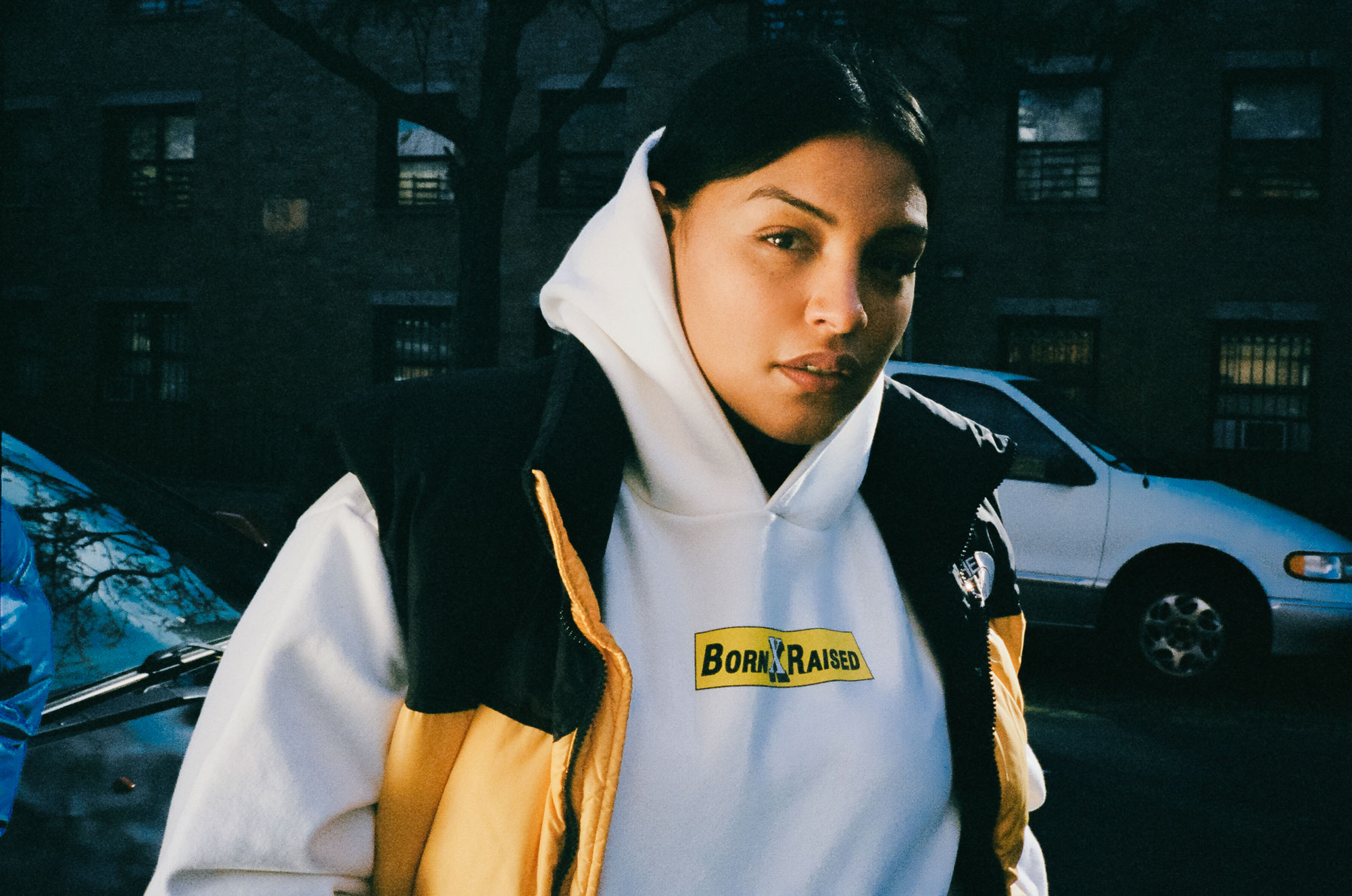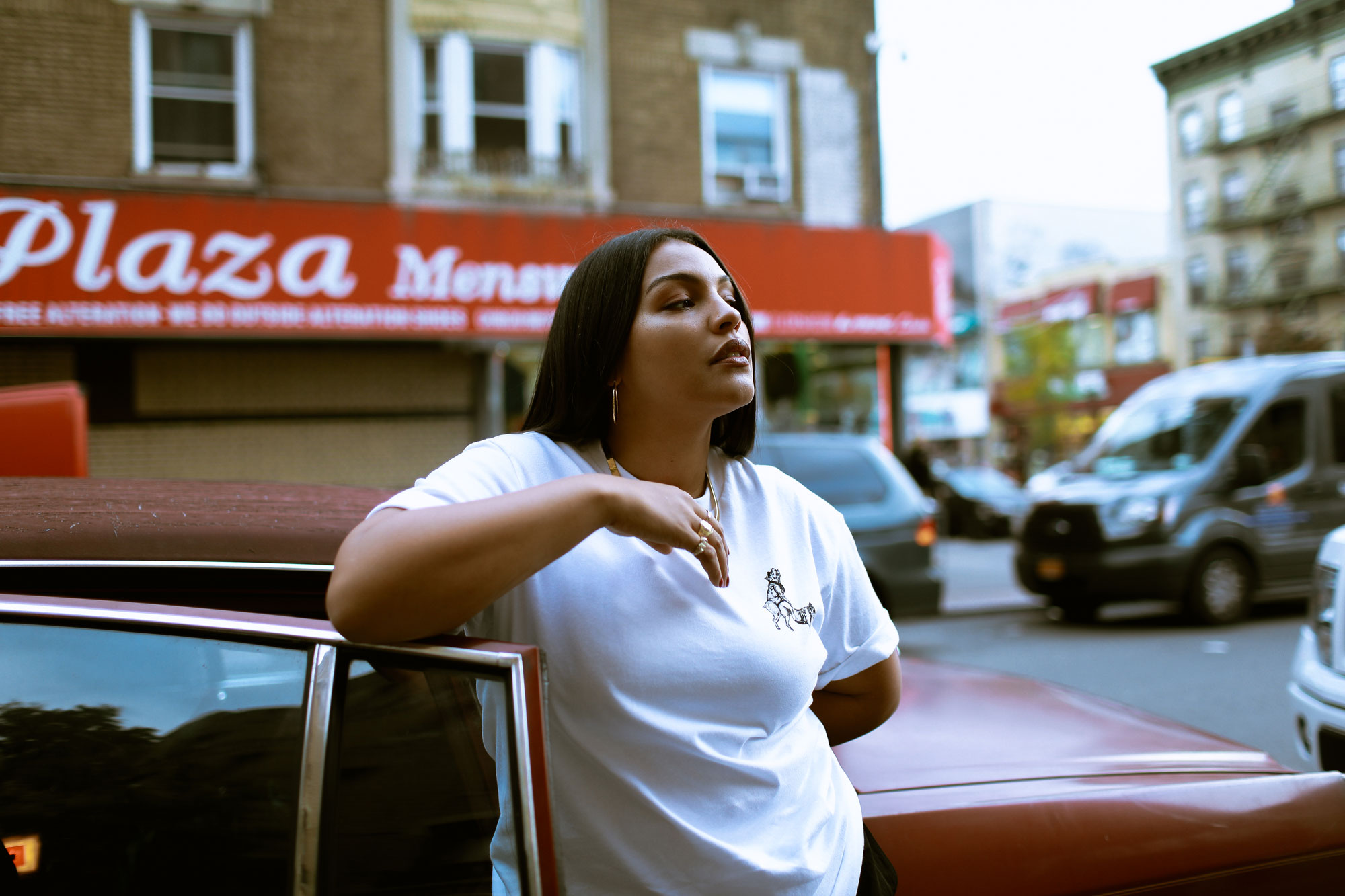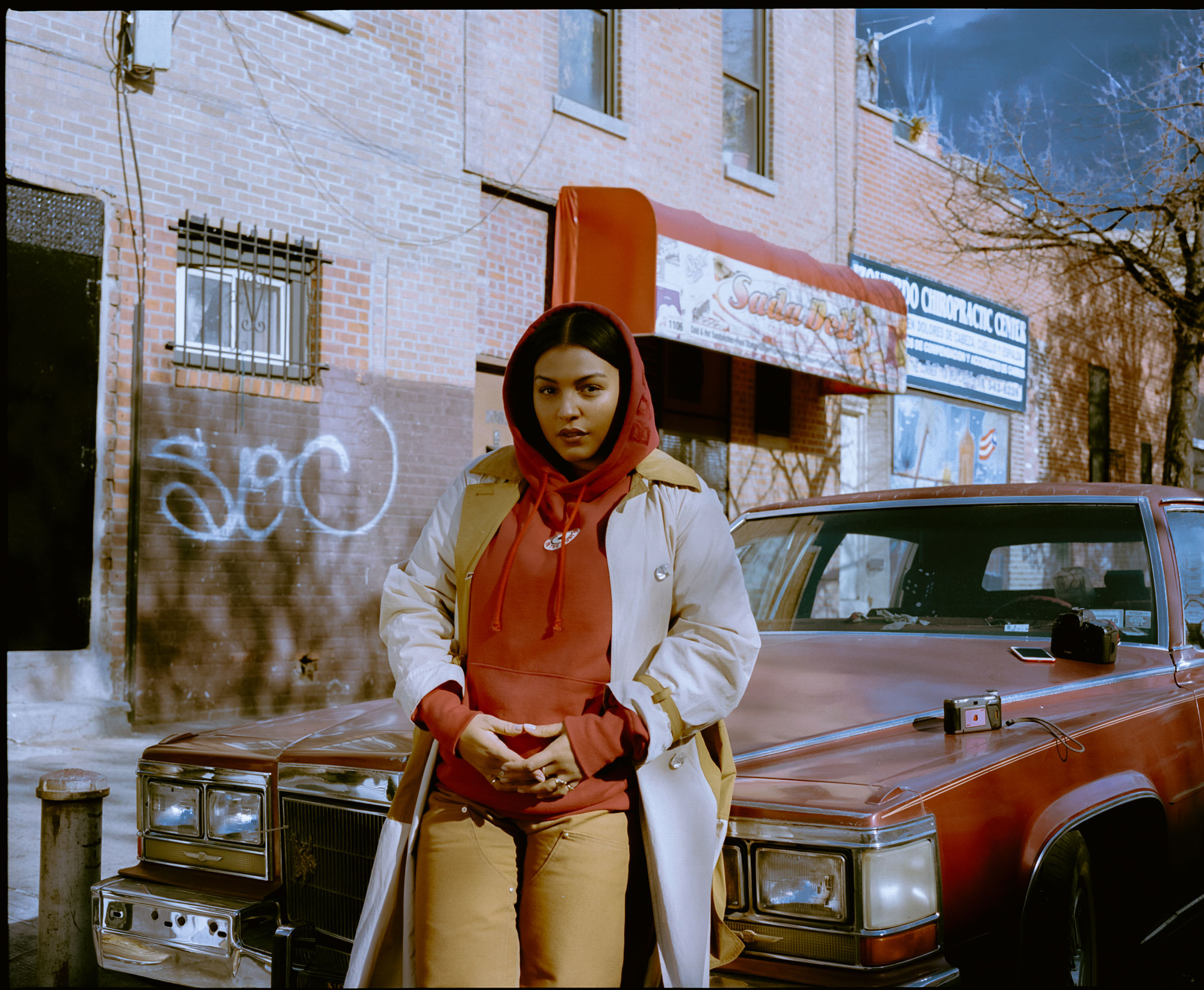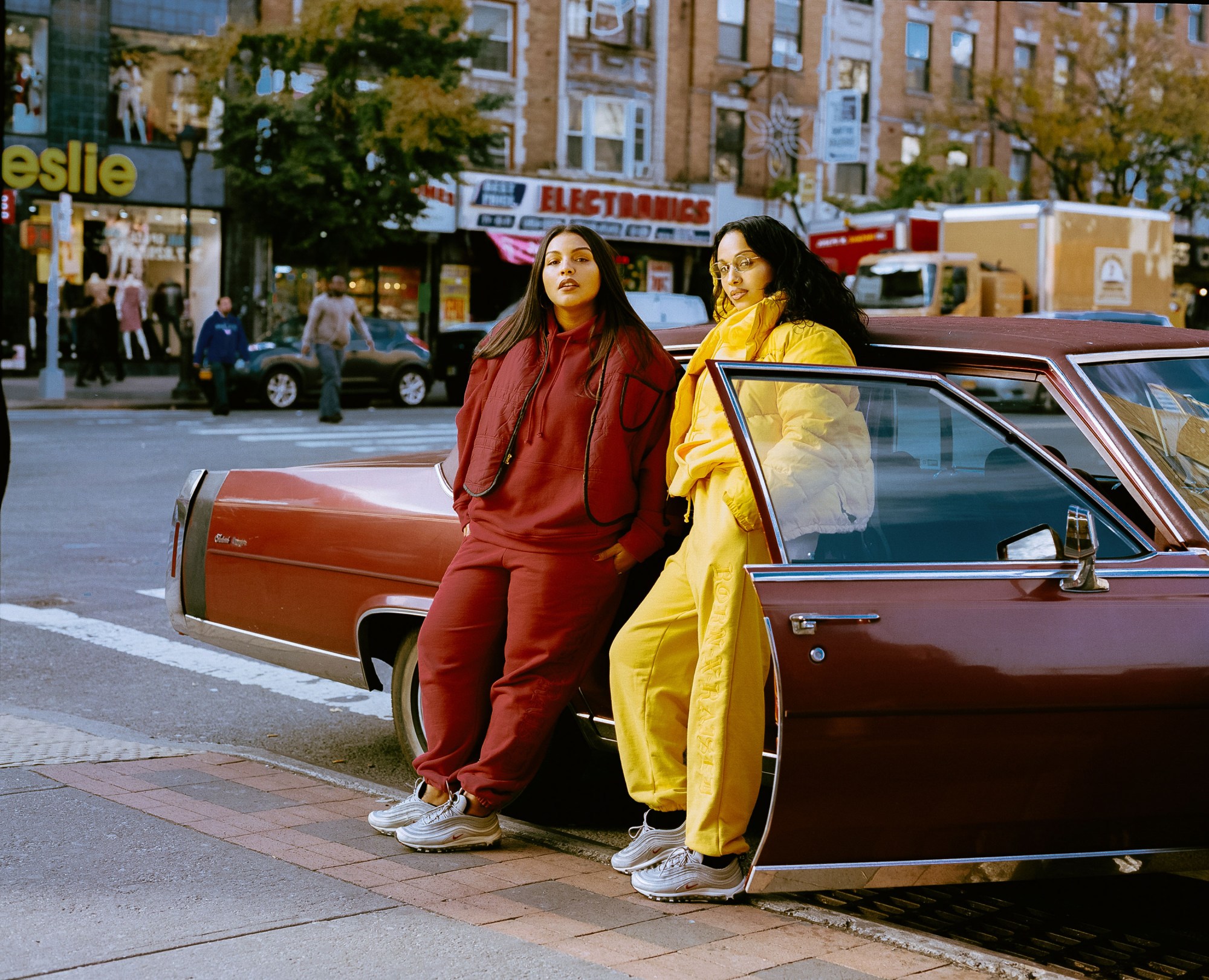The tentacles of gentrification have coiled their ironclad grip around the majority of major cities these days. It’s the eight-story scaffolding emblazoned with www.luxuryflats.com, the £3.80 soy lattes you warm your chilblained hands on during the power walk to work, the Veggie Pret falafel wrap you buy everyday after briefly contemplating whether you should go nuts and just get the spiced chickpea one.
It’s also the driving concept behind streetwear brand BornxRaised. “The idea came out of a frustration with the rate at which the fabrics of our neighbourhoods were eroding,” the brand’s 35-year-old cofounder Spanto says, who began the label in 2013 with his creative partner 2Tone. “I’m from Venice, California, and my town had become unaffordable to its indigenous residents through high speed over-development,” Spanto says. He’s not wrong — as the Guardian reported in March, an onslaught of tech startups and branded green juices have seen Venice become one of the most quickly gentrified postcodes in North America. And unfortunately, it’s the minorities who don’t just get kicked to the curb — they get kicked off the street altogether. “My family is an indigenous people, my mother and father both have Native American roots,” Spanto explains. “I have direct experience with the processes pushing native people away from their neighborhoods.”

So how does the brand push back against this seemingly inevitable and inescapable phenomenon? “We use the collections to shine a light on the people that built these cultures,” Spanto explains. Take their latest shoot in the Bronx, a borough that he maintains is one of the least gentrified in New York. Thankfully — though not surprisingly — the BornxRaised duo took a refreshingly real approach to the shoot, as opposed to the tried and truly abysmal ‘chuck a skinny white model in a less affluent area with a fake Banksy in the background and call it edgy’ modus operandi employed by so many half-hearted editorials and high street campaigns.
To prevent such a superficial outcome, and knowing that any shoot is only as good as the team behind (and in) it, the duo called on friends Paloma Elsesser and Venus X as models and creative consultants. “They built a crew of their peers, all women of colour who are on the move in their fields,” Spanto explains. Team role call: Renell Medrano on photography, Miyako Bellizzi on the styling, Raisa Flowers on the make up. Result: a collection of powerful women in enviable clothes looking really good. “This group of women are redefining what it means to exist in an urban culture,” Spanto continues. “They are fiercely loyal to their friends and family and have seen success through hard work as they evolve perceptions around being young female creatives in this world.” It’s this loyalty that really underpins Spanto’s fierce desire to ensure his heritage isn’t swept under an overpriced Moroccan rug sold at the latest artisan furniture boutique. It’s an inextricable tangle of friends, family and heritage that have helped him through some incredibly tough times — Spanto has been battling cancer for the past four years. “Paloma has been there for me through all of it,” he says. “My father’s response to my terminal cancer diagnosis was to initiate a peyote ceremony,” Peyote being a natural hallucinogenic often used in Native American culture for healing purposes. “2tone and I joined my extended family through a day-long sacrament centered around defeating my sickness,” he continues. “I think that a combination of both worlds is to thank for my health and recovery.”
If both worlds can work together in harmony, does that mean there are some upsides to gentrification? “There are always going to be some that benefit, but there is often a cost,” Spanto explains. “Some families are going to get pushed away while others succeed.” He adds that the phenomenon’s inevitability is exactly why emphasising ingrained support systems is so integral: “We have to learn to evolve. But this is why it’s important to stay true to family and friends and to support each other as things change.” That said, while change is inevitable, the erasure of an area’s historical and cultural identity doesn’t have to be. “There’s a right way and a wrong way to do something,” Spanto concludes. “You should take your shoes off when you step into somebody else’s home.”



